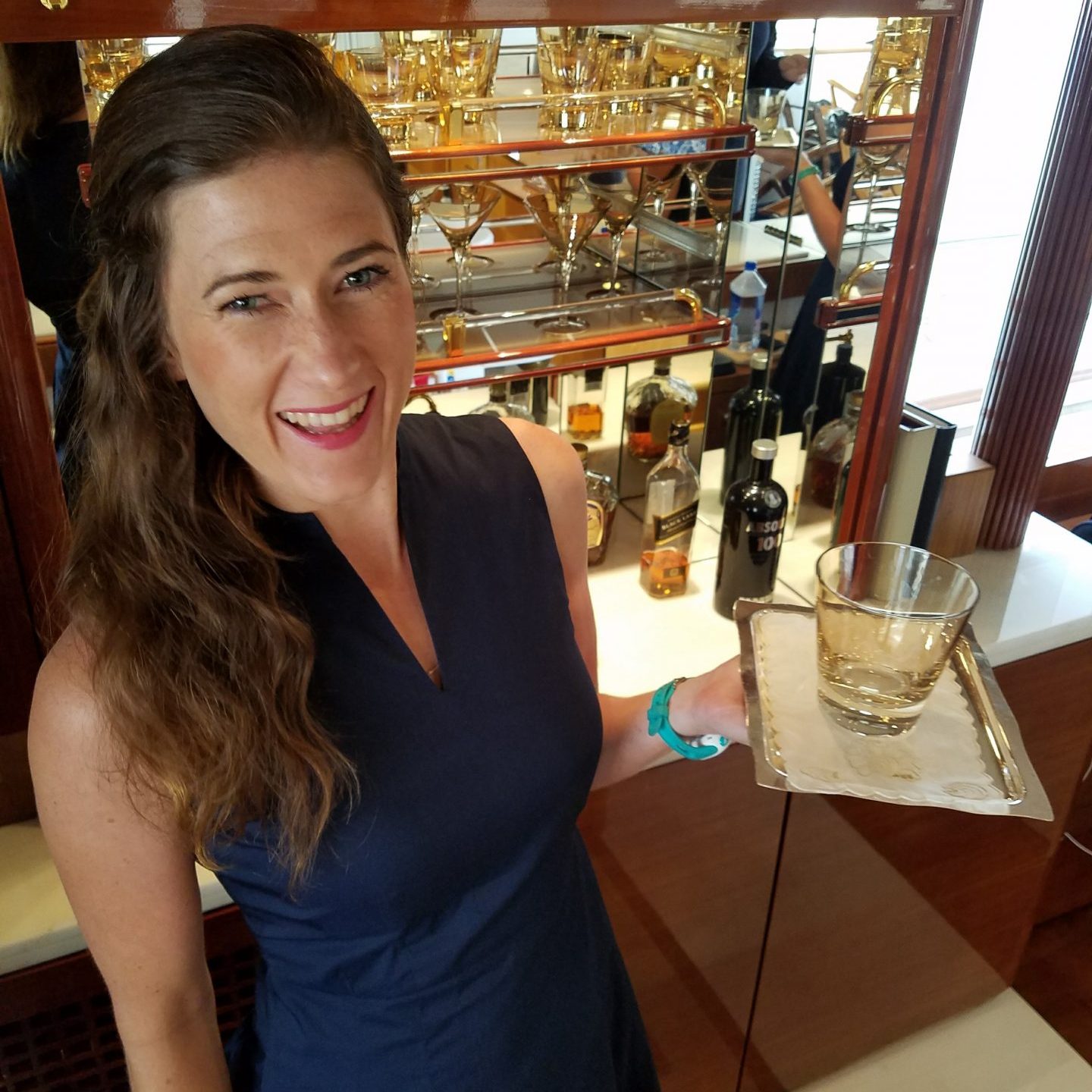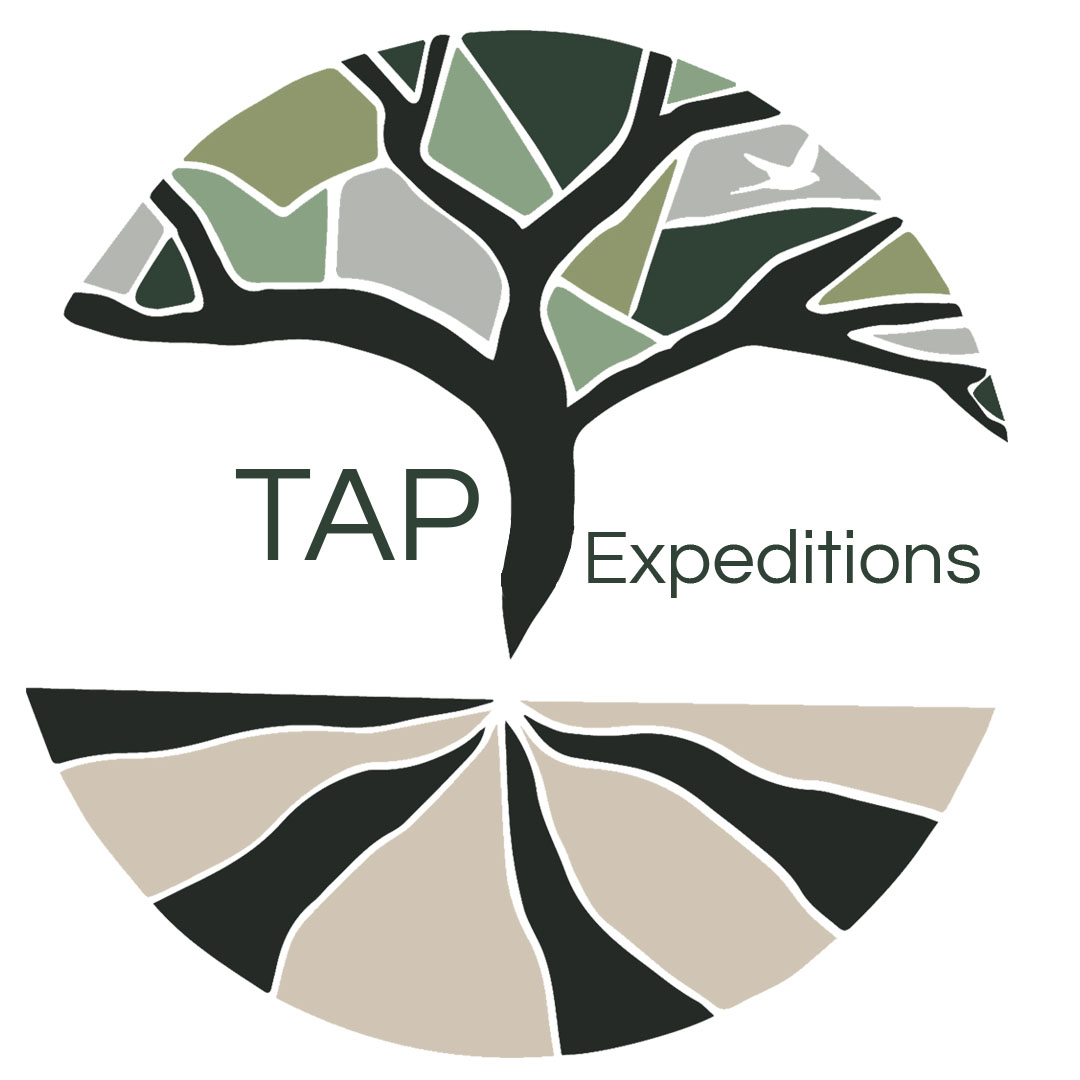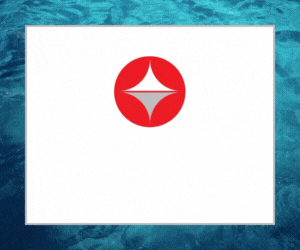How did Gemma Heyns go from being a chief stew to a CEO, and what advice does she have for you?
Gemma Heyns, former chief stew and current CEO of TAP Expeditions, an African Safari company that provides tailored and unique exploration experiences for captains, crew, and guests was in the exact same position as you. So, how do you go about planning your life after yachting?
Life after yachting: Q&A with Gemma Heyns:

1. Tell us about your life on board, ie what made you choose a career path in yachting, how long you were a yachtie for, what your job role was.
I started yachting purely for the ability to travel, growing up in South Africa, international travel wasn’t affordable nor was our passport accepted in other countries on a working basis. Yachting seemed to be the answer to these setbacks, I set my mind to two years, the plan was to travel and explore as much as possible. I didn’t know enough about yachting to focus on climbing the ladder to Chief Stew… initially.
Time passed and I loved the adventure and yachting community, after traveling and working seasonally in the industry I was allowed to step up to a Chief Stewardess position. It was at this stage that my focus shifted from the need to explore every corner of the globe to the need to build capital for whatever my next endeavor might be. Ultimately I ended up working in the industry for a decade and looking back now a decade filled with incredible experiences, self-growth, and maturity.
2. Which yachts had you worked on previously?
So, in my early years I struggled to find a job, to be honest, I met agents and applied for jobs relentlessly but nothing came. Answering every unknown phone call with an air of hope. Finally, my first job came as a sole stewardess on a private/charter 30m motor yacht, formally known as M/Y Eagles Nest (shout out to any sole stew working on a charter boat – some of those days were my most brutal days onboard.)
From there I moved to M/Y Serque and it was here working as a 2nd stewardess under an incredible Chief Stewardess who was also a professional butler, ran top restaurants in NYC (as head chef), and served on some of the most beautiful mega superyachts. She had a hugely successful career in hospitality and an overwhelming commitment to developing my skills set. To this day I have not met a more inspiring, hardworking woman in the industry, to who I am eternally grateful for! These were the tough breakthrough years, from there I stepped up into Chief Stewardess roles on 55m – 65m motor yachts.
3. What is your current Job role now and where are you based?
My current role is one of many hats (a great skill learned in yachting) I founded a boutique safari company called TAP Expeditions creating tailored travel to Southern Africa.
I build and market itineraries personalized to each guest’s interests and needs in their quest to explore Africa’s wildlife, culture, landscapes, and history. My day to day ranges from meetings with industry professionals, social media and marketing, website development, sales, and accounts, and of course looking after guests ensuring they have the best information and preparation before, during, and after their travel. I love Africa and TAP Expeditions is a platform to share that love with others.
4. At what stage did you know it was the right time to consider transitioning to a land-based job? Can you explain the rationale behind your decision?
The decision to go land-based came out of a personal need to reconnect with my family and friends at home. There had been so many missed occasions and I felt as though I was living in a different world from all of it. It was an emotional decision. It was only once I was land-based, working for a safari company in Cape Town that my focus settled and my plan forward started to align. I had played with the idea of opening a safari company.
Many guests during my yachting days had asked if I would ever consider taking them to Africa (let’s face it African news can be quite intimidating) and my answer was always a huge YES! I would love to share the beauty of my continent with guests who after a ten-day charter or so thought they might never leave the boat or me behind!
Similarly, the fellow crew from around the world are always eager to explore. I found I was able to help plan their trip to Africa when they were often left with little planning time (often crew is caught in a crazy season and when it ends they jump on a plane and their leave starts). Running TAP Expeditions is purely commissioned base (the properties where you stay take the price knock). Thus crew is given expert knowledge, will be informed of ongoing specials, and not have the pressure of working and planning to deal with. All for the price they would pay had they booked the trip themselves.
I built my industry knowledge and nurtured connections within my safari job until I received a phone call from a long-time captain who I worked with for many years. “Gem,” he said, “do you want to come back and help me set up another amazing program?” A tough decision, but it was a yes; let’s face it who leaves yachting only once;) I went back, now with a clearly defined plan to utilize yachting to set up what would be my future career.
Having a rotational role meant I had time and capital to build my business. Working on a private/charter vessel gave me access to the clientele market I need while forming valuable relationships. This time around I had a goal and strategy to kick start my official life after my yachting career.

5. Did you have a plan for your new career before arriving on land and did you have an idea of what you wanted to do?
As per above, it took an emotional need to leave yachting before I was able to formulate a strategic exit the second time around. Having a plan ensured that I made the most out of every contact, opportunity, and cent made while still working on a yacht.
6. Can you tell us what the best part of being a CEO is, and how the skills you acquired as a yachtie have helped your career life after yachting?
It’s funny cause I have been reflecting on this recently. When I took my very first yacht job, an experienced stew who I met at a crew house said to me:
“congratulations working as a sole stew you will learn all facets of the job. And, the results obtained are a direct reflection of your hard work and commitment to succeed.”
Well, those words ring true as a CEO too, especially starting as a one-woman show, it is the commitment to succeed which can be grueling. But once you start ticking off those milestones, the reward is nothing short of empowering.
Yachting as an industry adds huge value to creating a rounded CEO.
These are the top three skills in my book:
A. Yachting develops the skill to work under immense pressure with limited time frames, high expectations, and logistical constraints.
B. Yachting truly expanded my ability to understand and work with a range of people from vastly different wealth, cultural and demographic backgrounds. The ability to create a strong team and empower individuals to share their passions and common goals are huge. It is the road to success, an old African proverb I am encouraged by says, “if you want to go fast, go alone. If you want to go far, go together.”
C. Responsibility, learning to be accountable for yourself and your role, whether it is caring for and maintaining a billion-dollar yacht, honoring your word, or just showing up and being present, hold yourself accountable.
7. If you could go back in time, do you think you’d make any changes to the way you went about the transition from the sea to land?
Yes, the major difference would be TIME! I should have realized time is not infinite. There are many points in my yachting journey where I could have better utilized the resources available to me. I would have started planning and building my business much earlier and invested more in the maintenance of relationships over time.
8. What do you think the biggest challenges are for crew wanting to leave yachting and start something new?
There is a huge misconception about the yachting industry. A “yachtie,” is almost always immediately classified as a dropout or party starter, or just lost. My advice to anyone leaving the industry is, don’t play into these misconceptions, be proud and confident of what you have achieved!
For example, all you chief stews/stewards out there, you’re not a specialist toilet cleaner (not that this should be dismissed itself, it shows grit). You successfully managed the interior staff and functioning on-board large, privately owned motor yachts valued at $20 000 000, as well as everything below:
– Controlled and managed interior budgets and supplies
– Facilitated human relations, key skills development, and training of multiple expertise to a diverse workforce
– Interior team recruitment and hiring
– Client relations and silver service provider to an elite international clientele on expeditions starting at $350 000/week
– Events management, seamlessly orchestrated a variety of successful events and showings on board for up to 150 people, often with very strict time constraints and intense pressures
– Sourcing and facilitating suppliers and contractors in remote, foreign locations
– Conflict resolution and problem-solving to ensure seamless efficiency and customer service
– Safety, security, and medical aid duties
– Food and hygiene safety
You have done a lot!!!! Don’t undermine your skillset.
9. Is there anyone who has inspired you, or helped you build this new path for yourself?
I have had some amazing friends and family worldwide who have helped to put TAP Expeditions on the map and grow my reach, thank you to them. A former employer once said to me follow your passion, often great ventures are born out of a passion project, even if you feel like you’re swimming upstream. This has been advice that kept me moving forward even when adversities hit.
10. And lastly, where do you see yourself in the next 5 years?
On safari! In five years, I would like to have an established confident team of safari specialists. Have more resources to empower the work taken on by my partnering charities. Maintain the personal and intimate connection between clients, staff, and suppliers. Relationships are worth more than the bottom line and I hope in five years I still know that.

To finish off, please could you share with our readers your top 3 tips for preparing for life after yachting:
- Utilize your platform, the people, the travel, the money! It is a blessing to have an abundance of these while still in the yachting industry
- Nurture relationships, surround yourself with your biggest advocates
- There is more to success than money, establish these goals early
Following on from our life after yachting series, make sure to read our feature with Matt redstone, former head of global services by, clicking here.
For the latest yacht crew news, click here.















